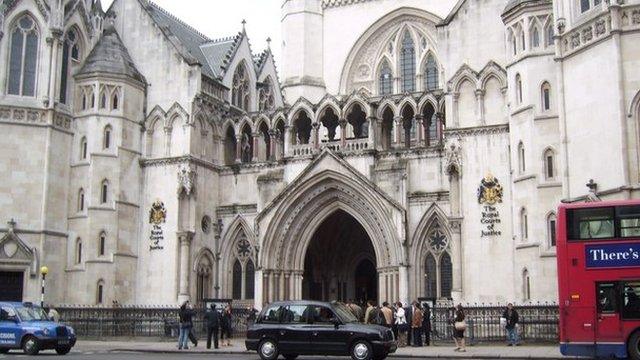Covid: Family of woman lose appeal against end-of-life ruling
- Published

A judge has agreed with specialists at Addenbrooke's Hospital that no more can be done for the woman and life-support treatment should end
Relatives of a woman left brain-damaged and paralysed after contracting Covid-19 have lost an appeal against a ruling that she should be allowed to die.
The woman, in her 50s, was admitted to Addenbrooke's Hospital in Cambridge in late 2020.
A judge had ruled earlier this year that no more could be done for her and life-support treatment should end.
Her family appealed against the ruling but Mrs Justice Theis has ruled life support can now end.
Last week, she examined up-to-date evidence at a hearing in the Court of Protection over the course of two days.
Relatives told the judge that in the past four months they had seen a "bubblier" person and someone who was "more alert and aware".
But specialists treating the woman, identified only as AH, said she had deteriorated since August.
'Very real burdens'
At a previous hearing specialists treating the woman said she was the "most complicated" Covid patient in the world and recommended palliative care should begin.
In giving her judgement, the judge said that after weighing all arguments and taking into consideration the presumption that it was in the woman's best interests as well as the wish of the family to keep her alive, she should be allowed to die.
"I have reached the conclusion that the very real burdens in the particular circumstances AH is in, with the prospect of no change and more probably a continued deterioration which may last many months of treatment, with the risk of an infection and dying away from her family, outweigh those very considerable benefits," she said.
"I am acutely aware this is not the outcome this family would want."
She added that the relatives could not have done more.
"I have no doubt AH as a daughter, sister, mother and grandmother would have been proud of what they have done, as she clearly has been about each of them during her life prior to December 2020," she said.
Following the ruling Cambridge University Hospitals NHS Foundation Trust medical director Dr Ashley Shaw reiterated the trust's sympathy for the family "in this devastatingly sad situation".
He said: "This is an exceptionally rare condition resulting in catastrophic and irreversible brain damage and our doctors have explored every medical treatment.
"Independent medical experts and a highly experienced Court of Protection Judge have agreed with our teams that further treatment to prolong life would only extend the patient's suffering.
"We will continue to work closely with the family to meet their needs, as well as the needs of their loved one. Once again, we commend our staff as they strive to provide ongoing compassionate and dignified care."

Find BBC News: East of England on Facebook, external, Instagram, external and Twitter, external. If you have a story suggestion email eastofenglandnews@bbc.co.uk, external
- Published2 November 2021
